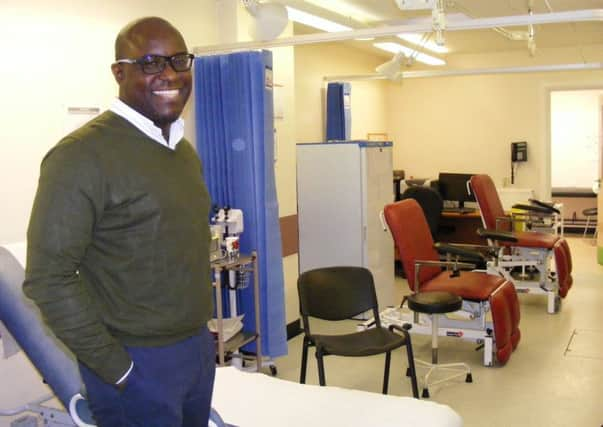Urgent care centre pilot extends hours to ease winter A&E pressure


The Urgent Care Unit based at Sleaford Medical Group on Boston Road is extending its opening by two hours until 8pm Saturday and Sunday for the next two weekends to help support overstretched A&E departments during the peak winter period of demand.
The Urgent Care Unit opened from 8am – 8pm on Saturday and Sunday and will do the same this weekend, treating minor injury and illness.
Advertisement
Hide AdAdvertisement
Hide AdThe unit is in its third year of a pilot scheme, with a view to it being replicated elsewhere in the county to filter out unnecessary visitors to A&E.
It is run by an experienced team of nurses and GPs, and provides an assessment and treatment service, which, in conjunction with Sleaford Medical Group’s Minor Injuries Unit (open 8am – 8pm Monday to Friday), treats a range of conditions, including minor illness, from 6.30pm – 8pm Monday to Friday as well as weekends.
The move should speed up access to treatment and relieve pressure on A&E departments by reducing the numbers attending unnecessarily for non-life-threatening conditions.
The Urgent Care Unit is available to patients whether or not they are registered at Sleaford Medical Group and is a walk in service, with no appointment necessary. Your GP will receive a summary of the care you have received at the unit.
Advertisement
Hide AdAdvertisement
Hide AdDr Vindi Bhandal, GP and chairman of South West Lincolnshire CCG, said: “With ever-increasing pressure on A&E, we are encouraging patients to make use of the extended hours offered by the unit in Sleaford. By using the services offered at the practice, we can ensure patients receive the right care locally, first time.”
Dr Gaspar daSilva is the clinical lead for the Urgent Care Unit, which is staffed by receptionists, a doctor and a nurse at all times. People do not need to phone ahead, just walk in and they will be triaged by the trained health care assistant on the desk to see if the unit can help and then patients are usually seen within an hour.
Dr daSilva said: “We have seen how people have appreciated an alternative to travelling to hospital. As it has gone on people have been coming from further afield - even Lincoln and Skegness - as they are becoming aware that it is unsustainable to present to A&E for minor things - never mind the fact that you might have a long wait.
“The problem has been in the past, where do they go if not A&E? Here they are catered for within 20-30 minutes. The 111 out of hours phone service also directs people here.”
Advertisement
Hide AdAdvertisement
Hide AdGenerally the Urgent Care Unit sees between 45 to 80 patients a day at the weekend. Dr daSilva said the main problem for A&E departments has been the sheer volume of patients turning up, made worse by people researching their own ailments and fearing the worst but not being able to see a GP for several days. He said it was about detecting which patients really need to see a doctor: “Having well-trained minor illness nurses takes up a lot of the slack and a doctor is on hand to supervise or take over.”
By doing so he said this frees up a doctor’s time to see those that really need his expertise. This triage system also sifts out what really needs to go to hospital. If a hospital visit is necessary (possibly an x-ray) GPs can fill in forms that bypass a three-hour wait in A&E and get the patient straight to their scan.
Minor illnesses are generally non-existing conditions lasting over 48 hours and up to two weeks such as colds, chest infections, tonsilitis, urinary tract infection and non-invasive matters. Minor injuries include cuts and sprains.
The CCGs will be looking at whether to continue the service and possibly expand it this April. One day Dr daSilva hopes such units become common place, able to handle x-rays and fractured bones, freeing up more hospital time.
Advertisement
Hide AdAdvertisement
Hide AdDr daSilva said: “We have shown we are a cost effective alternative. We are reducing A&E and out of hours attendance to hospitals by about 20 per cent.
“There are many things that can be done in the community. You have to get doctors on board and train patients to know where to go for specific symptoms.”